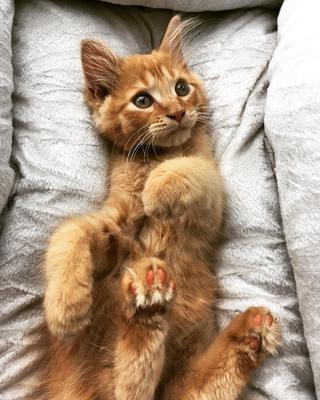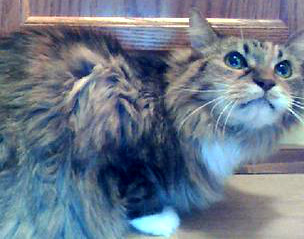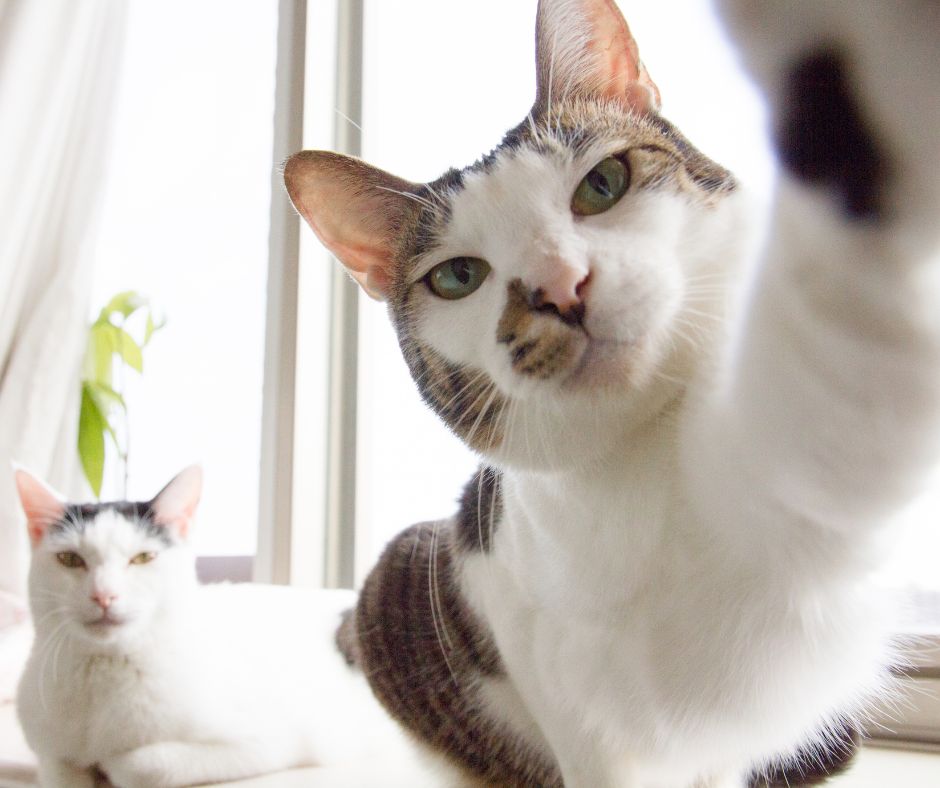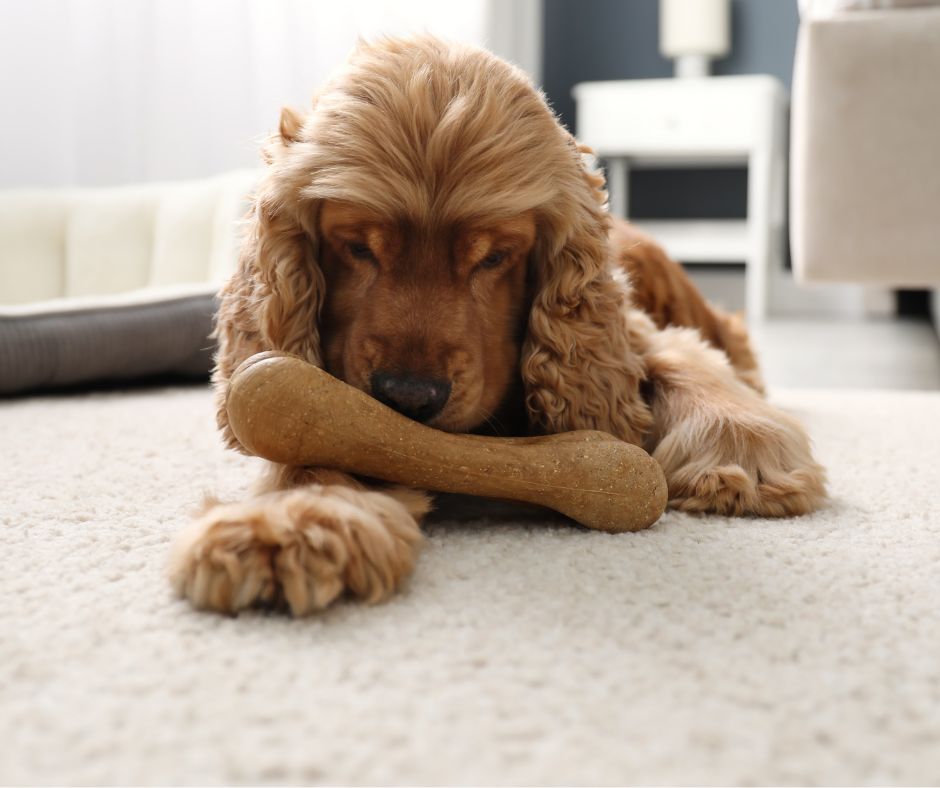- Home
- Fleas on Cats
- Cat Drooling After Flea Treatment
Cat Drooling After Flea Treatment
What it Means and What to Do
It's concerning to see your cat drooling after flea treatment. My small female kitty, Alice, did not tolerate topical treatments well at all. I just knew her little body was panicking, as she hid under a bed and held herself stiff as a board, with huge eyes, for many hours. We didn't repeat that treatment.

Cats are like people. They are each unique, with different temperaments and different bodies. Just as we humans vary, so do they. One human may tolerate a medicine, another may have a side effect.
The most common type of flea treatments are pyrethrum-based. The main ingredient will be listed as pyrethrum, pyrethroid, or permethrin. Cats are especially sensitive to pyrethroids.
Also, cats are particularly sensitive to these pesticides because they have less effective metabolic pathways, and because of their grooming instincts.

Here's what it means if you see your cat drooling after flea treatment:
According to MedVet, drooling and excessive salivation are symptoms of flea control product toxicity. Toxicity can occur from one to twelve hours after application, and vary from pet to pet.
Other symptoms include muscle tremors, diarrhea, vomiting, difficulty breathing, small pupils, weakness or falling over.
Flea product toxicity can be treated, and your cat can recover. But you must call your vet immediately. Depending on the severity of reaction, other symptoms, and type of toxicity, intravenous liquids could be needed.
They may also prescribe medication to lessen symptoms and help your cat eliminate the toxins from his body.
Depending on the type of toxicity, ingredients and dose, the situation can become fatal. So even if your cat drooling after flea treatment is the only symptom, do make that call rather than monitor the situation to see if your cat gets better on his own.
Make sure to gather the packaging when calling, so you can answer any questions about what was used.
It may be recommended that you gently bathe your cat to remove any residue you can, using a gentle soap such as dawn liquid detergent, and make sure your cat dries fully, as she will be susceptible to chilling.
Cats with lower body temperature are at a higher risk of showing signs of toxic poisoning.
Excessive salivation, or cat drooling after flea treatment, is considered a mild reaction. It is the most common reaction along with muscle tremors (a moderate to serious reaction). Other symptoms in the mild category include paw flicking, ear twitching, mild depression, vomiting and diarrhea.
Reactions such as paw flicking, ear twitching and cat drooling after treatment are often mild and resolve. So it's possible that nothing more will come of it and kitty will be fine after calling your vet and monitoring. If symptoms progress to muscle tremors, she will need immediate care for stabilization.
Tips for avoiding cat drooling after flea treatment and other toxic reactions:
 A Cat Drooling After Flea Treatment Requires Close Attention
A Cat Drooling After Flea Treatment Requires Close Attention- Review the medicine before applying, making sure it's labeled for the correct species, weight and age of pet. This is especially important in multi-pet households.
- Separate pets in different rooms after treatment to make sure they don't lick the medicine off each other.
- Enlist help in applying topical treatment to ensure it gets applied in the correct location, where they can't reach, and that it gets absorbed into the skin and not soaking the fur. This can happen with wiggly, excited, or uncooperative pets.
- Never use two different products at the same time, or apply a different medication before the last one is due for reapplication. Even if they are both safe, and different, they can react badly.
- Always consult your veterinarian regarding what type of flea treatment to use. Often just a quick phone call can set you in the right direction.
Top of Cat Drooling After Flea Treatment
Sources:
WHAT YOU SHOULD KNOW ABOUT FLEA PRODUCT TOXICITY IN DOGS AND CATS. (2018, August 17). Www.Medvetforpets.Com. Retrieved November 4, 2021, from https://www.medvetforpets.com/know-flea-product-toxicity-dogs-cats/
Flea and Tick Medicine Poisoning in Cats. (2009, January 19). Www.Petmd.Com. Retrieved November 4, 2021, from https://www.petmd.com/cat/conditions/neurological/c_ct_pyrethrin_pyrethroid_toxicity



